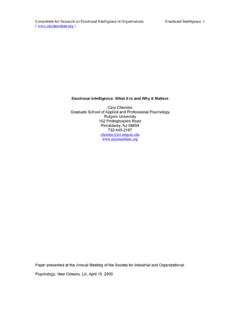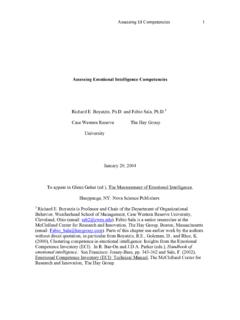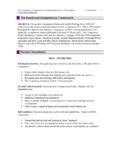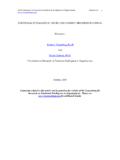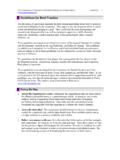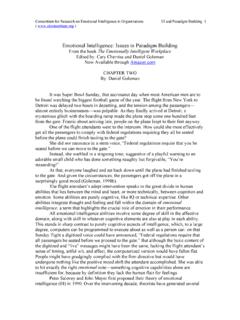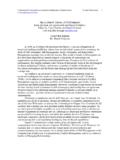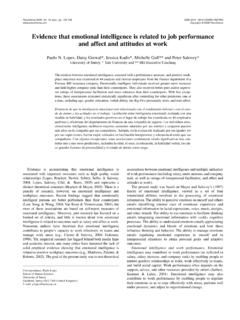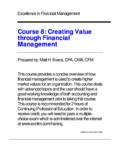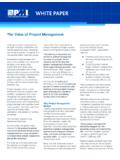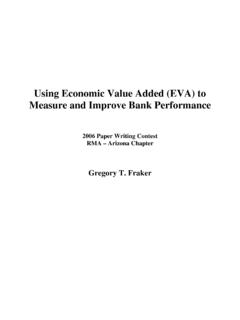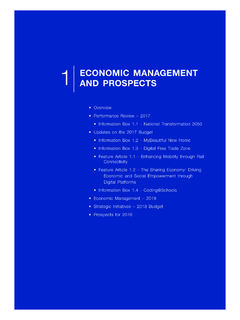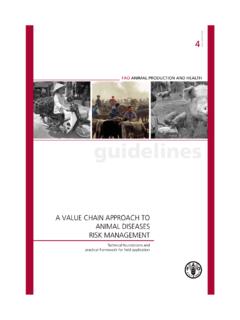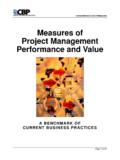Transcription of THE ECONOMIC VALUE OF EMOTIONAL …
1 In Cherniss, C. and D. Goleman, eds. (2001) The Emotionally Intelligent Workplace: How to Select for, Measure, and Improve EMOTIONAL Intelligence in Individuals, Groups and Organizations. San Francisco, CA: Jossey-Bass/Wiley. Reprinted with permission. Jossey-Bass and Lyle Spencer Lyle Spencer PhD Spencer Research & Technology 303-B Anastasia Blvd St. Augustine, FL 32080 USA Tel: 1-904-823-9815 Email: CHAPTER FOUR THE ECONOMIC VALUE OF EMOTIONAL INTELLIGENCE COMPETENCIES AND EIC-BASED HR PROGRAMS Lyle M. Spencer cceptance of EMOTIONAL intelligence competency (EIC) concepts and programs by academics, professionals, and organizations will ultimately depend on their demonstrated validity and utility.
2 This chapter reviews the rationale and methods for evaluating EIC-based human resource programs in monetary terms, and it also presents preliminary met a-analytic estimates of the ECONOMIC VALUE added by these interventions. Rationale Reasons for evaluating EIC projects in ECONOMIC terms include satisfying professional ethics and acceptance criteria, satisfying legal requirements, and demonstrating ECONOMIC utility. Professional Ethics and Acceptance The Standards for Educational and Psychological Testing, prepared by a committee of the American Educational Research Association, American Psychological Association, and National Council on Measurement in Education (1999), require measures (and l)y inference, human resource programs based on these measures) to be reliable and valid (that is, to statistically predict) outcomes of ( ECONOMIC ) VALUE to individuals or organizations.
3 EIC researchers and practitioners are regularly savaged by critics for failing to publish reliability and validity data: for example, Barrett (2000) denounces EIC as slickly packaged junk science perpetrated by unscrupulous consultants on ignorant customers. Published data about the efficacy of EIC programs exist (see Chapter Nine), but EIC advocates have largely failed to bring these data to human resource (HR) professionals attention. Legal Requirements A In Cherniss, C. and D. Goleman, eds. (2001) The Emotionally Intelligent Workplace: How to Select for, Measure, and Improve EMOTIONAL Intelligence in Individuals, Groups and Organizations. San Francisco, CA: Jossey-Bass/Wiley. Reprinted with permission.
4 Jossey-Bass and Lyle Spencer Lyle Spencer PhD Spencer Research & Technology 303-B Anastasia Blvd St. Augustine, FL 32080 USA Tel: 1-904-823-9815 Email: and Canadian courts, under civil rights and (in Canada) pay equity laws, have ruled that any [HR] decision-making processes, from background checks to supervisory performance ratings, that affect an employee s status in an organization, are tests, and thus subject to scrutiny for adverse impact (Latham & Wexley, 1981). These rulings effectively extend requirements for statistical reliability and validity to any assessment for selection or promotion, any development opportunity and any performance appraisal affecting pay or career opportunities.
5 Legal requirements for scientific reliability have been expanded by Supreme Court Associate, Justice Stephen Breyer s decision for the majority in Kumho Tire, Inc. v. Carrnithael (119 Sup. Ct. 1167 [1999]), which extends an earlier Supreme Court ruling in Daubed v. Merrell Dow Pharmaceuticals, Inc. (509 579 11993]). Daubert required expert witness testimony to be based on tested scientific knowledge, demonstrate reasonable reliability criteria, have been subjected to peer review, report the size of the known error rate for findings .. [and] establish whether the knowledge enjoys widespread acceptance in the scientific community (Daubert, cited in Wiener, 1999). Valid development opportunities, for example, can clearly make a difference in an employee s status, and for this reason they have been the subject of many legal battles (such as the 1978 Bakke v.)
6 Regents of the University of (California). Access to (quality) EIC education and training opportunities almost certainly falls under these laws. An employee can complain: You sent me to the feel-good course when my colleagues got to go to validated training which helped them show improved business results and get promoted? Discrimination! And lawsuit? The legal status of psychological tests and programs in European Community countries under EC and individual country labor laws and union and worker council agreements is less clear, but many observers believe scientific validity requirements for HR practices will become law in Europe. Multinational HRIS vendors (for example, PeopleSoft and SAP) are designing their systems to provide data on whether EIC programs pass legal tests of reliability and validity.
7 ECONOMIC Utility Evaluation methods that look at the economics of human resource programs are premised on the same survival-of-the-fittest concept that governs all businesses: that is, the goal is to help investments flow from less valuable uses to uses where they generate the highest returns. ECONOMIC VALUE -added (E\A), cost-benefit, and return on investment (ROI) analyses lead HR staff to improve practices by helping them to Focus on the right problems or opportunities those with the greatest cost or VALUE , respectively to the firm. Focus on interventions that will have the maximum impact on costly problems and valuable opportunities. Demonstrating the ECONOMIC VALUE of outcomes also enhances the professional longevity credibility, and satisfaction of EIC researchers and practitioners in several ways.
8 First, the HR function competes with every other organizational function for capital In Cherniss, C. and D. Goleman, eds. (2001) The Emotionally Intelligent Workplace: How to Select for, Measure, and Improve EMOTIONAL Intelligence in Individuals, Groups and Organizations. San Francisco, CA: Jossey-Bass/Wiley. Reprinted with permission. Jossey-Bass and Lyle Spencer Lyle Spencer PhD Spencer Research & Technology 303-B Anastasia Blvd St. Augustine, FL 32080 USA Tel: 1-904-823-9815 Email: investment funds. HR professionals are more likely to he able to convince their customers to adopt programs when they can describe program benefits in ECONOMIC terms. Investment proposals with business cases showing compelling ROI projections are more likely to be funded.
9 Soft" programs and staff (that is, those lacking ECONOMIC justification are more likely to be cut. Second, HR programs are increasingly emphasized in making ISO 9000, JACHO, Deming, arid Baldrige audits and awards. Most of these assessments arc qualitative. ECONOMIC VALUE added data can provide powerful measures of HR programs quality Hard data showing that HR interventions made a meaningful business contribution to an organization are more likely than oilier evaluations to find their way into management reports and personnel folders and to enhance HR staff careers. The ECONOMIC VALUE of EIC-Based Programs An EMOTIONAL intelligence competency may be defined as an underlying characteristic of an individual which is causally related to effective or superior (one standard deviation above the mean) performance in a job" (Boyatzis, 1982).)
10 This definition may be stated more generally as an EIC is any individual characteristic (or combination of characteristics) that can be measured reliably and that distinguishes superior from average performance, or effective from ineffective performers, at levels of statistical significance. This superior performance definition of competence -- specifically, performance one standard deviation above the mean (or the top 15 percent, roughly the top one out of ten performers in a job) is preferred for two reasons: first, the ECONOMIC VALUE of EIC programs is easily calculated, and second, like any best practice bench-mark, EIC programs that predict the best level at which a job can be done drive human resource applications to add VALUE that is, to do better than individuals or firms present average level of performance.
